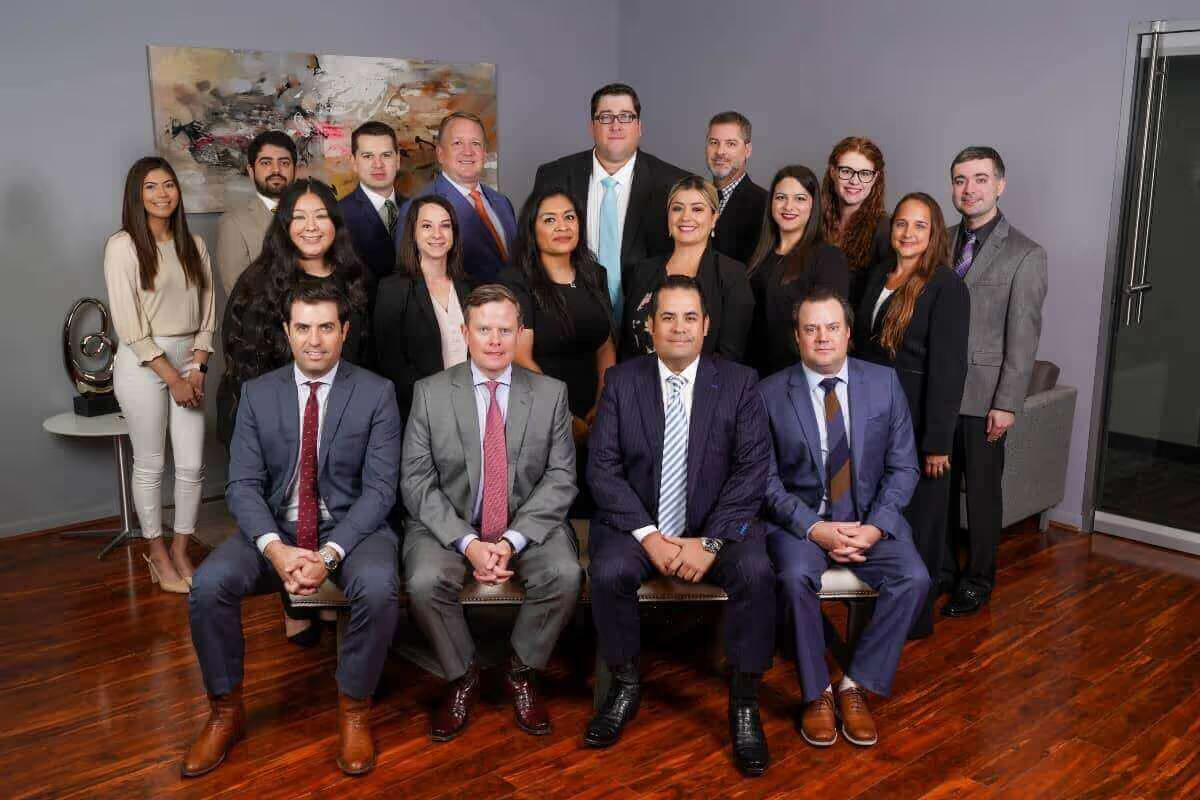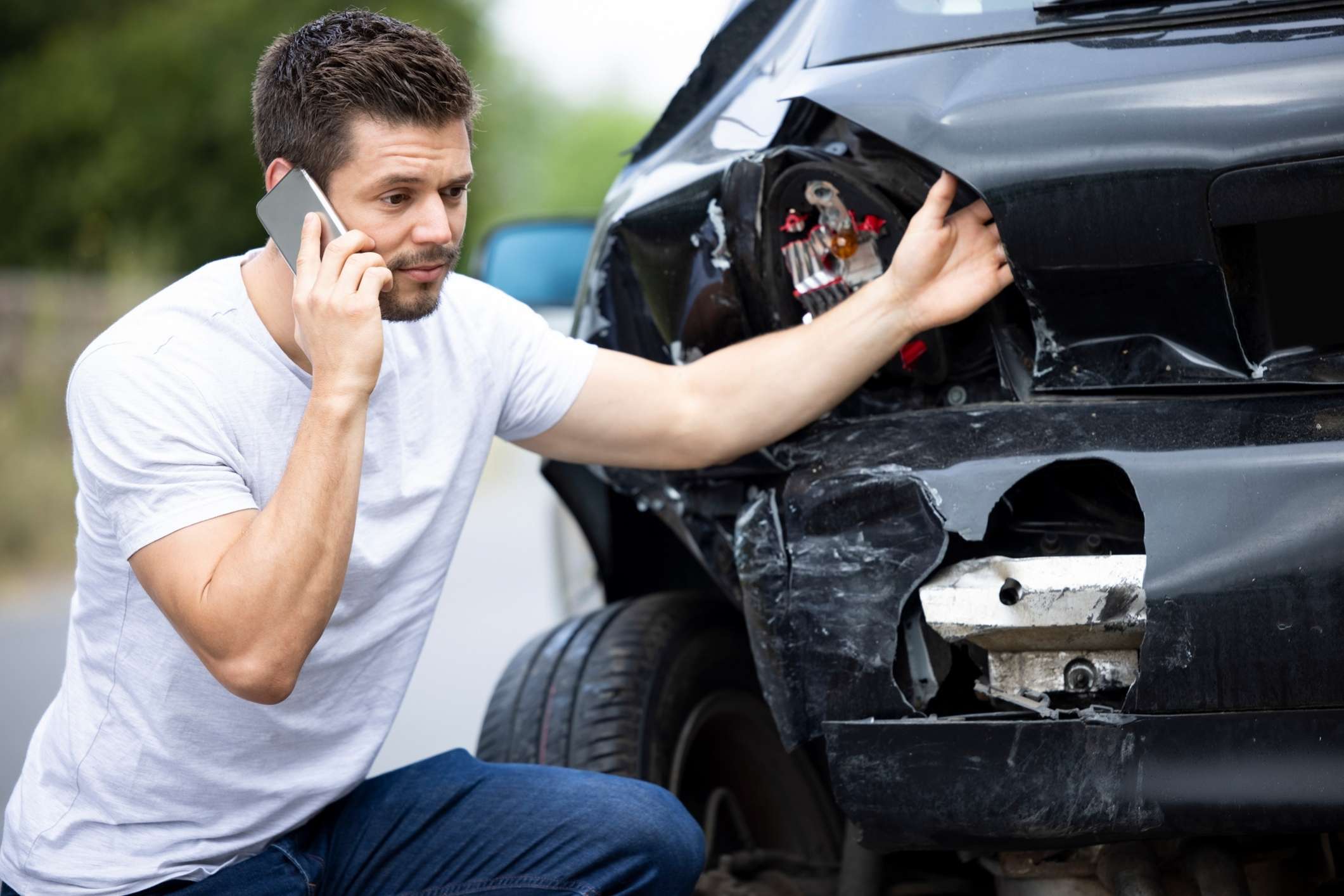Headlight Laws in Texas
Hiring a lawyer is the first step towards recovering a better quality of life. At Osborne & Francis, we devote our undivided attention to each client, and all communications are held in the strictest privacy. Contact us by filling out the form or calling us directly at (561) 293-2600.
By Pierce | Skrabanek
Published on:
July 8, 2025
Updated on:
July 22, 2025

.avif)
.avif)


Driving through Texas, whether you're on a quiet country road or navigating rush hour traffic in a busy city, means staying alert and keeping your car in top shape. One of the most important (and often overlooked) parts of your vehicle is your headlights. They don’t just help you see where you’re going, but they help others see you, too.
However, many drivers aren’t completely clear on what the law actually says about headlights in Texas. Following Texas headlight laws isn’t just about avoiding a ticket. It’s about keeping yourself and others safe on the road.
As a law firm that works closely with people injured in car accidents, we’ve seen how something as simple as poor lighting can lead to serious crashes. If you’ve already been in a crash where faulty headlights or poor visibility played a role, you don’t have to face the aftermath alone. Let Pierce Skrabanek fight for your rights. Contact our team today online or by calling (832) 690-7000.
When Your Headlights Are Mandated According to Texas Headlight Laws
Most people know they need to turn on their headlights when it gets dark. But in Texas, the law also requires you to use them during other conditions as well, including:
- Nighttime Operation: The most direct requirement dictates that headlights must be used from 30 minutes after sunset until 30 minutes before sunrise. This period is strictly defined, and continuous illumination is mandatory.
- Conditions of Impaired Visibility: Texas law specifically mandates headlight use when weather conditions or insufficient light reduce visibility to the point where you can not see a person or another vehicle on the highway at a distance of at least 1,000 feet ahead. This includes challenging weather scenarios such as:
- Heavy rain
- Dense fog
- Snowfall
- Significant dust storms
If you’re having trouble seeing other cars a few city blocks ahead, it's time to turn your headlights on.
Unlike some states where you have to turn on your headlights whenever your windshield wipers are on, Texas focuses on how far you can see. If visibility drops below 1,000 feet, you need to switch your lights on.
Legal Headlight Types in Texas
It’s not just about when you turn your headlights on. The type of headlights you use matters, too. Headlight laws in Texas include specific rules about what kinds of lights are legal and what features they need to meet safety standards.
Texas law is very clear about the color of headlights that are allowed on the road. Permitted headlight colors are strictly limited to white light, with very few exceptions. Here's a quick breakdown of what's legal and what's not:
- Dual Headlamp Requirement: Texas law requires all vehicles to have two working headlights mounted symmetrically on the front, positioned between 24 and 54 inches above the ground.
- Are Colored Headlights Legal in Texas? One of the most important rules in Texas is that headlights must shine white light only. For regular passenger cars, colored headlights are strictly prohibited. While emergency vehicles, such as police cars, fire trucks, and ambulances, can use colors for other lights, these are strictly off-limits for everyday drivers. If your car’s front lights shine any color other than white, you could face legal trouble.
- Tinting and Approved Bulbs: Headlights need to stay clear and free from anything like covers or grills that could change their color or make them less effective. Also, if you replace your bulbs, they must have a "DOT" or "SAE" certification to show they meet safety standards.
Are LED Headlights Legal In Texas?
Both Light Emitting Diode (LED) and High-Intensity Discharge (HID) headlights are allowed, provided they adhere to specific criteria:
- White Light Standard: Consistent with all other headlight types, LED and HID lamps must produce white light.
- Brightness Regulations: Texas law follows federal rules and sets a limit on your lights’ intensity and brightness. That brightness is measured in something called candela, which tells you how much light the headlight puts out in a specific direction. In Texas, headlights usually need to stay between 500 and 3,000 candela. If you install aftermarket LED lights that are brighter than 3,000 candela, they can cause too much glare for other drivers.
- Proper Aiming Is Crucial: The powerful output from LED or HID lights means you must be very careful when positioning them. Even if your lights are the right color and brightness, if they’re not aimed properly, they can blind other drivers and create dangerous situations.
Other Vehicle Lighting Requirements in Texas Beyond Headlights
Staying safe on the road isn’t just about your headlights.
Beyond headlights, there are important regulations covering tail lights, brake lights, license plate lights, and even fog lights:
- Tail Lights: Your vehicle needs at least two working red tail lights at the back that can be seen from 1,000 feet away. These lights are crucial in preventing rear-end accidents.
- Brake Lights (Stop Lamps): You must have at least two brake lights at the rear that shine red or amber and are visible from 300 feet in daylight when you hit the brakes.
- License Plate Illumination: Your rear license plate has to be lit with a white light so it’s clearly readable from 50 feet away at night.
- Fog Lights: If your vehicle has fog lights, you can use up to two in front. These lights should be aimed low enough so they don’t interfere with your main headlights and are designed to help you see under foggy conditions, not through them.
- Motorcycles: Motorcycle riders have to keep their headlights on at all times, day and night, to make sure they stay visible and safer on the road.
Even if another driver caused the crash, a problem with your headlights could still be used against you. For example, if your lights weren’t on or one was out during low visibility, the other side might argue that your car wasn’t clearly visible and that you share part of the blame.
Under Texas’ comparative negligence law, that could reduce the amount of compensation you receive. In some cases, it could even block your claim entirely. If you’ve been in an accident and are unsure how this might affect your claim, Pierce Skrabanek is here to help. Call us at (832) 690-7000 or contact us online today to speak with an experienced car accident attorney who will fight for the compensation you deserve.
What Happens If You Don’t Follow Headlight Laws in Texas?
Not following Texas headlight laws can lead to fines, legal trouble, and even problems with your vehicle registration. Similar to car seat laws, Texas law enforcement takes lighting violations seriously because they directly affect everyone’s safety on the road.
Here’s what can happen if your headlights aren’t up to code:
- Fines and Tickets: You could get a traffic ticket and face a fine, often more than $200, for issues like a broken headlight or using high beams the wrong way.
- “Fix-It” Tickets: If it’s something minor, like a burned-out bulb, you might get a warning or a fix-it ticket. This gives you a chance to repair the problem and show proof to the court by a certain date. If you don’t take care of it, the fine can go up and lead to more serious consequences.
- Other Violations: Getting pulled over for a headlight issue could lead to officers spotting other problems, like expired registration or a suspended license. That can quickly turn a small issue into a big one.
- Points on Your License: Some lighting violations may add points to your driving record. Too many points can eventually lead to a suspended license.
- Higher Insurance Rates: Traffic violations can raise a red flag for your insurance company, which could lead to an increase in your premiums.
- Inspection Problems: If your headlights aren’t working properly or don’t meet the legal standards, your car can fail its annual safety inspection. That means you won’t be able to renew your registration until everything is fixed.
Drive Responsibly, Drive Informed, and Know You Can Turn To Pierce Skrabanek for Help
Following headlight laws is more than just checking a box. It’s a key part of being a responsible driver and protecting yourself and others on the road. From making sure your lights are the right color to using them when visibility is low, every detail matters.
But if you have been injured or if you lost a loved one in a car accident, and faulty lighting may have played a role, whether yours or someone else’s, Pierce Skrabanek is here to help. Maybe you're facing questions about your own headlights, or the other driver’s lights failed to meet legal standards. Either way, our legal team can investigate, explain how the law applies to your case, and fight to get you the compensation you deserve.
With over $500 million recovered for clients and 30+ years of combined experience, the attorneys at Pierce Skrabanek are nationally recognized for their results.
We offer free consultations and work on a contingency fee basis, so you pay nothing unless we win for you. Call us at (832) 690-7000 or contact us online today.




